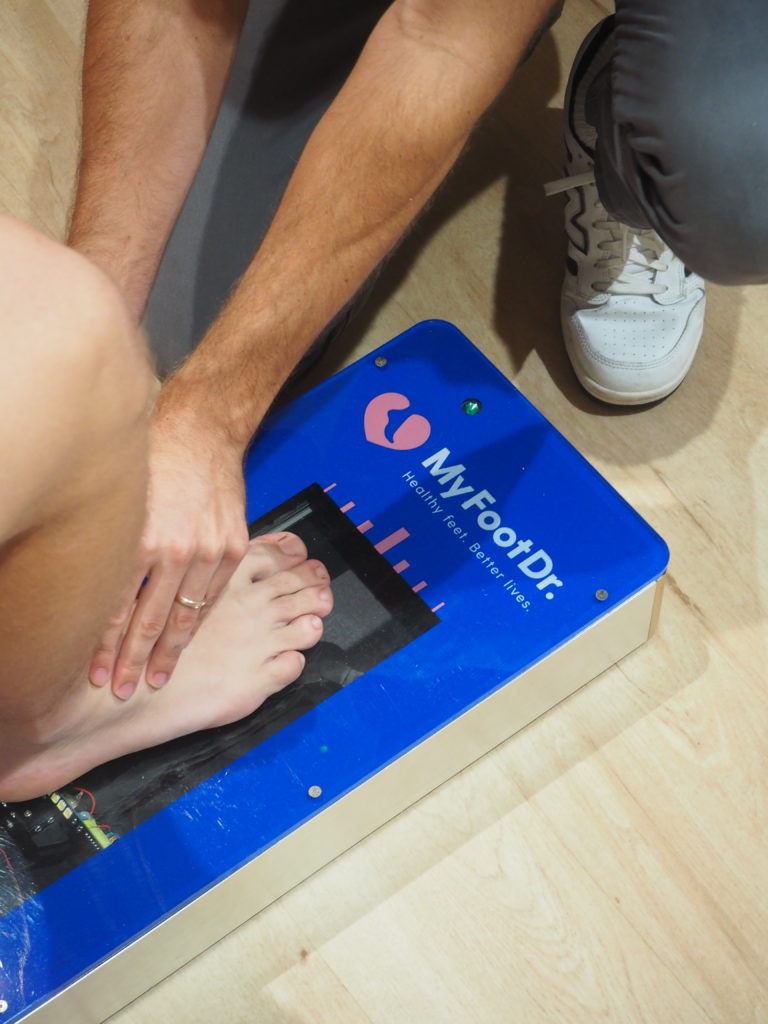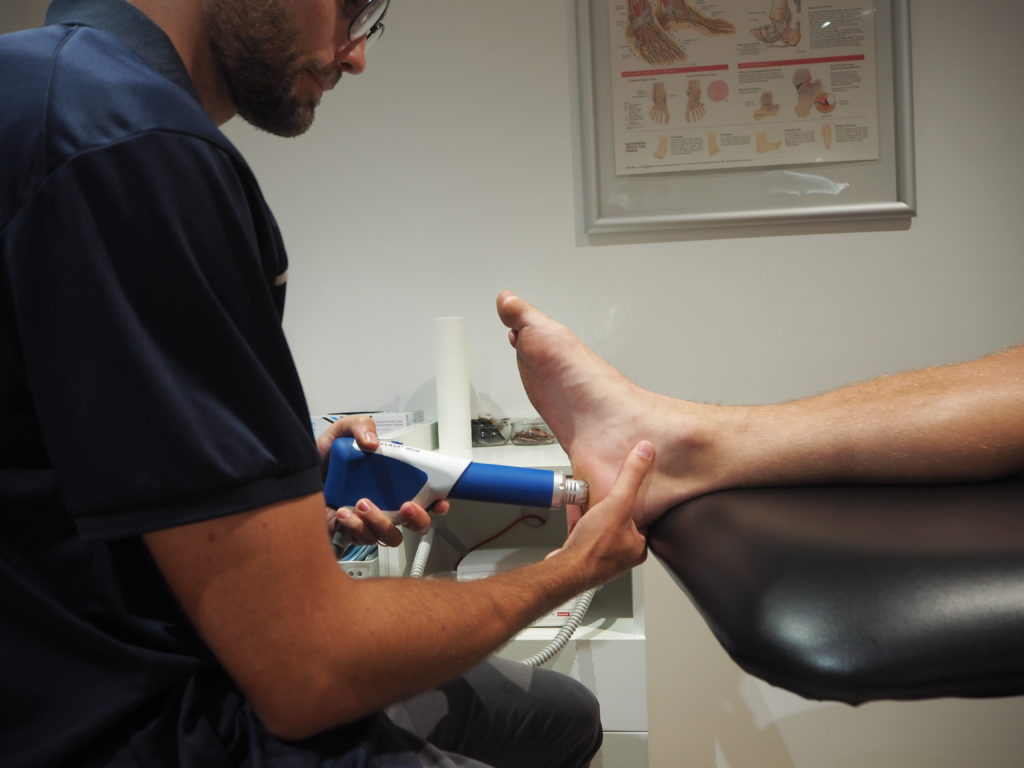At My FootDr Charlestown, we treat a range of foot and ankle conditions including Plantar Fasciitis, we are conveniently located across the road from Charlestown Square.
What Is Plantar Fasciitis?
Take your finger and trace from the bottom of your heel, out to all five toes like a fan. This is your plantar fascia, a connective tissue that fans out across your arch and helps stabilise and support your foot while you walk, run and move. When the plantar fascia is overloaded and strained, it can become injured, and inflamed and cause heel pain. This is known as plantar fasciitis.
How To Treat Plantar Fasciitis


Treating your heel pain must be uniquely tailored to your level of injury, symptoms, daily activities and life. We’ll look at what caused the original damage to your plantar fascia, and what factors may be placing additional strain on the tissue, thereby affecting your healing and recovery. By offloading the plantar fascia, it can heal and recover, while you stay on your feet and active.
We have a range of world-class treatments to help with this including shockwave treatment, custom foot orthotics, a custom stretching and strengthening program, footwear modifications, specially placed padding, night splints and more.
At My FootDr, we believe that healthy feet can lead to a better quality of life. Our team of podiatrists are qualified, board-registered and experienced. While together we’re the biggest podiatry team in Australia, giving us access to world-class, innovative heel pain treatments, each clinic works very much locally to offer the best care for their patients while building genuine relationships.
How Long Does Plantar Fasciitis Take To Heal?
Plantar fasciitis and the associated heel pain can last on and off for months and years if it is not well managed and allowed to heal. This is as you engage your plantar fascia with each step, so it never gets a real rest – unlike when you have your arm immobilised in a cast or sling. We know how restrictive and limiting having a cast or moon boot is to your life and work, so our treatment of plantar fasciitis does not involve these measures, unless absolutely necessary like in a plantar fascia tear or rupture.
How To Know If You Have Plantar Fasciitis
You may feel:
Sharp heel pain and discomfort at the bottom and inside of the heel, which may radiate up into the mid-arch region
A ‘stone bruise’ type pain, like you are walking on a stone or a bony heel spur
Heel pain that is worst during the first few steps in the morning, and on standing from rest
Heel pain that is aggravated by physical activity and running.
To learn more about Plantar Fasciitis, click here!
About our Podiatrist

Brad Roser
Podiatrist
Bachelor of Podiatry
Brad has been a practicing podiatrist in the Newcastle and Hunter area since 2016. He is experienced in all aspects of podiatry care including foot pain, foot care, orthotic therapy and diabetic assessment. Inspired by his love for golf and soccer, Brad also has a distinct passion for musculoskeletal injury management.

